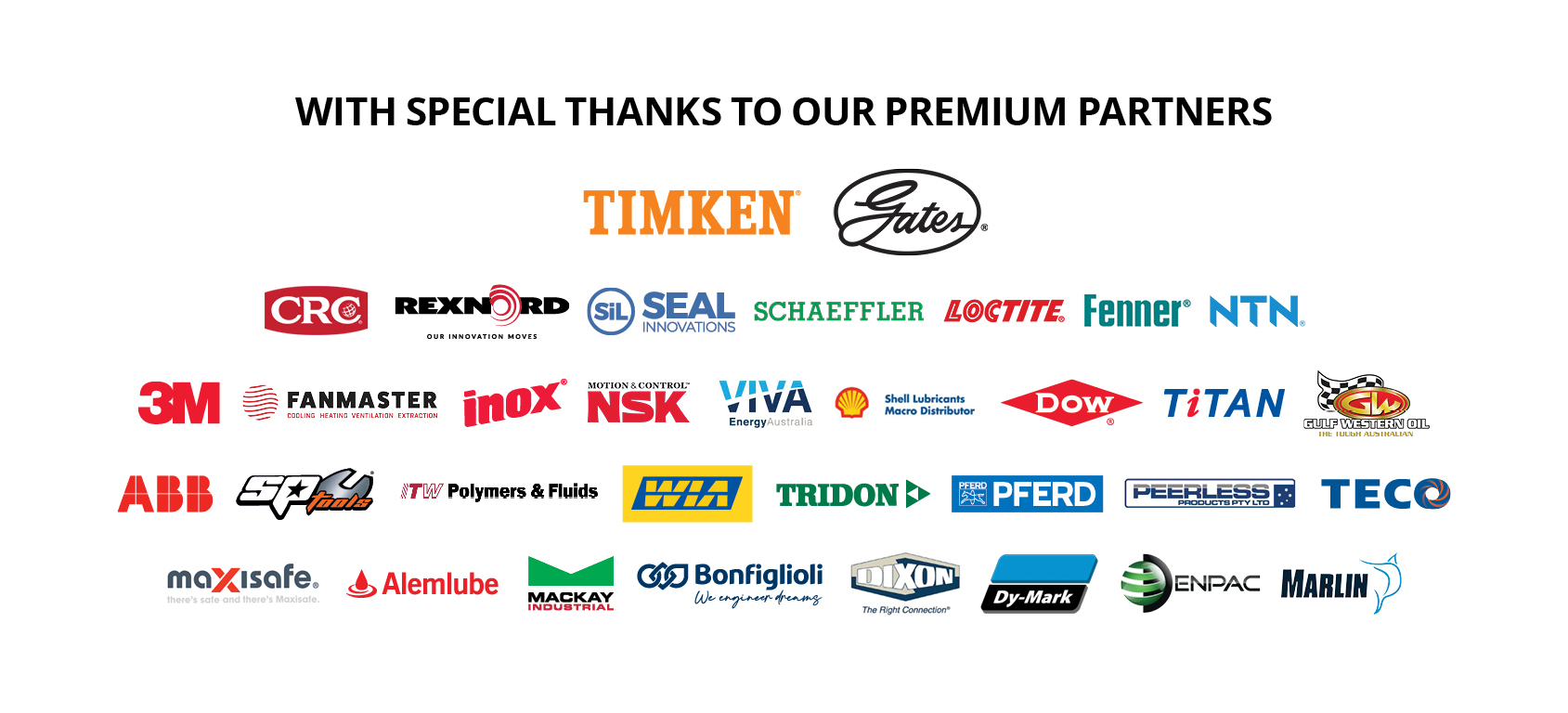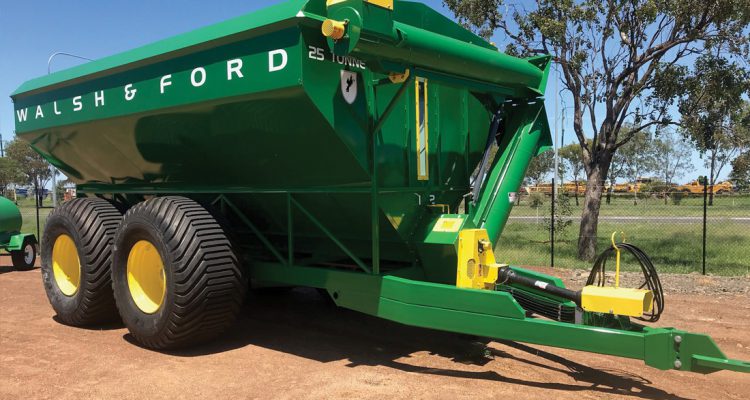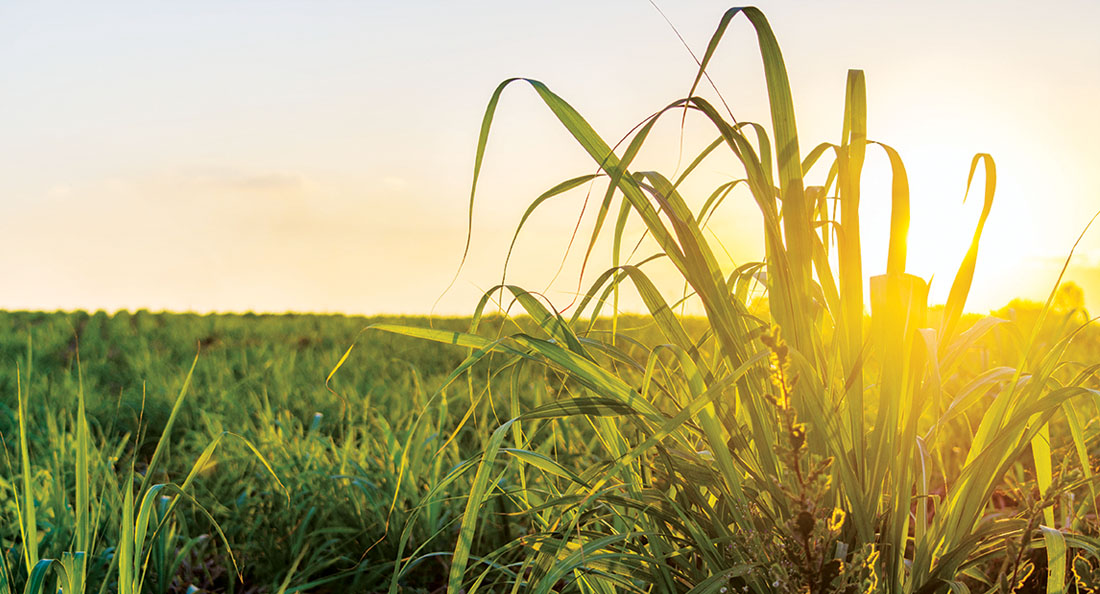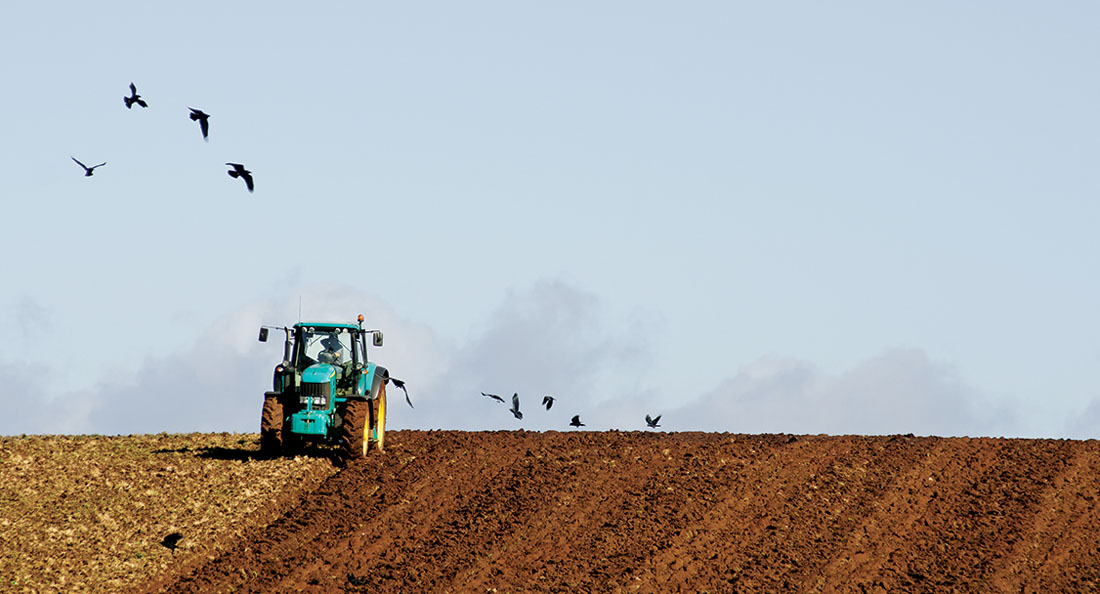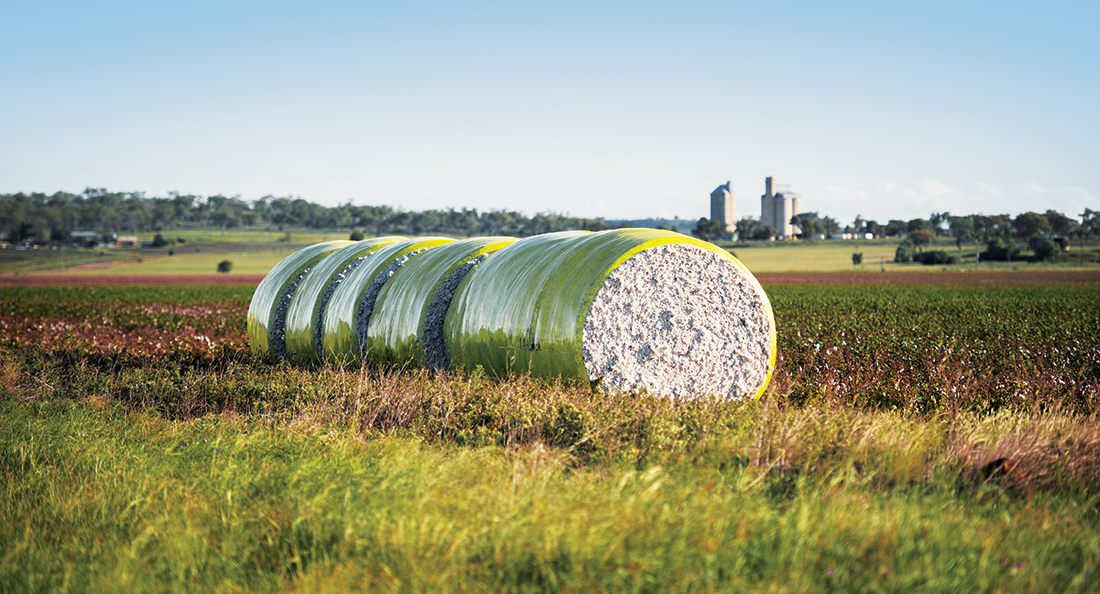When asked to share his views on what has changed in the world of bulk material handling for Australian farmers over the past decades, Peter Walsh is quick to respond with “sizes, volumes and capacities.”
“The machines that we produced in the 50s, which would have serviced the requirements of farmers quite adequately, are now considered nothing but toys,” says Peter, the owner of Walsh & Ford company based in Dalby – which has been meeting the requirements of Australian farmers for over seven decades.
“Everything has gotten bigger, tougher, faster. A bulk bin in the late 60s or early 70s might have had about 8-10 tonnes of capacity. That’s now being superseded by bins 36 tonnes or bigger. The farmers want to move massive payloads, efficiently and with minimal labour.”
Established in 1949 by Peter’s father, Eric Walsh, and his business partner Percy Ford, the Walsh & Ford business began by producing different items to meet the requirements of local farms. These covered anything from bagging hooks to saleyard gates, hinges to steel shed frames.
But the advent of bulk handling in the 1960s propelled Walsh & Ford onto another level, according to Peter.
“Starting around the 60s, the farmers began mechanising their bulk handling processes. By this time, we were producing as many as 100 units of augers or bulk bins per season. In those times in rural Australia, this was a major feat. Today, while we predominantly specialise in grain handling equipment, we also help with bulk movement of liquids, such as molasses, and even ducting air for cotton gins,” says Peter.
Today, Walsh & Ford has diversified its engineering services to manufacture custom-designed grain augers, barrel belt conveyors, grain buggies, grain haul and bins, and manure spreaders. Since joining the family business in 1992, Peter has also expanded the company’s clientele to include not only farmers Australia-wide, but also commercial customers such as cotton gins, stock feed producers and even oil and gas companies.
It is through this diversification that Peter says Walsh & Ford has been able to weather the ups and downs in market demand.
“We know demand ebbs and flows across our great country and we’d prefer to have a quiver full of different arrows that can address any particular need rural Australia has. One of the most satisfying things for us is when a customer who has purchased one particular product from us comes back in a few months with a requirement for a completely different product. This tells us that our customers don’t regard us as a one trick pony,” says Peter.
Innovation in design and the capability to customise products is something that Peter says Walsh & Ford prides itself on.
“One of our biggest strengths is in taking standard products and enhancing their design so that they become more user-friendly. An example is our versatile manure spreaders. We have designed them so that you can take the top off and put a chaser bin on the same trailer frame. We initially designed the manure spreaders with removable tops for ease of servicing but as soon as we did that, it became a very popular option for farmers,”
says Peter.
Backed by the skills of its long-term employees, Walsh & Ford also helps its clients rebuild or enhance their existing equipment, some of which are 20 to 30 years old. In all of its design, manufacture and rebuild works, Peter says Walsh & Ford always uses parts and components that have proven to provide a high performance. That is why Peter says his choice of bearings has always been the NTN bearings.
“Over the past decades, we’ve consistently enhanced our designs to cater to the higher capacities and efficiencies required by our customer. We use NTN bearings across all our products, whether it be conveyors, manure spreaders, chaser bins, or augers and we have never had any issues or failures,” says Peter.
For many decades, the CBC branch in Eagle Farm of Brisbane has been the go-to supplier for Walsh & Ford for all of their industrial requirements, not just bearings but also power transmission equipment and specialty seals.
Warren Beale, who initially joined CBC in 1968 and is currently the Original Equipment Manufacturing Manager at the CBC Eagle Farm branch, has known Peter since Peter was a kid, visiting the CBC store with his father.
“Peter is very much a relationship-oriented person, so whenever he visits Brisbane, he makes sure to visit our branch and he always meets everybody in the branch. We also regularly visit him in Dalby to help him with any supply requirements he may be having or any specific parts he may be looking for.”
Peter says the close relationship he shares with CBC as his supplier has helped him in more ways than one.
“CBC is more than just a supplier for us. I’ve known Warren Beale since the time of my father. Keeping face-to-face relationships is very important to me and CBC is very good that way. They are the type of people that I can ring up, talk about certain things and they can solve issues for me or aid my manufacturing. These might be things like sourcing taconite seals for my manure spreaders or finding parts for old equipment we are refurbishing.”
Moreover, Peter says having a reliable supplier like CBC is critical for his business to meet its commitments to customers.
“We have just-in-time policies that need to be spot on. That’s especially important for us during the busier seasons. For example, last year’s grain harvest was our largest season yet, and with the pressures on supply chain because of COVID-19, I was regularly talking to CBC about the supply situation. They would let me know if something was going to be in short supply as I didn’t want to strain the market with my orders. That’s the sort of trust-based relationship that I share with CBC,” says Peter.
Despite the hit backs from droughts in the east coast, Peter is optimistic about the region’s agricultural recovery.
“The future is bright. There have obviously been issues for farmers as droughts have affected the east coast, but with the foreign trade deals the country has recently secured and our domestic capabilities around food product manufacturing, I believe agricultural trade is going to pick up soon. And if we have learned anything from working in this sector is that nothing stays the same. The weather systems will change and the farmers and cotton gins will be looking at enhancing their existing equipment. When they do, Walsh & Ford is always ready to help them.”
